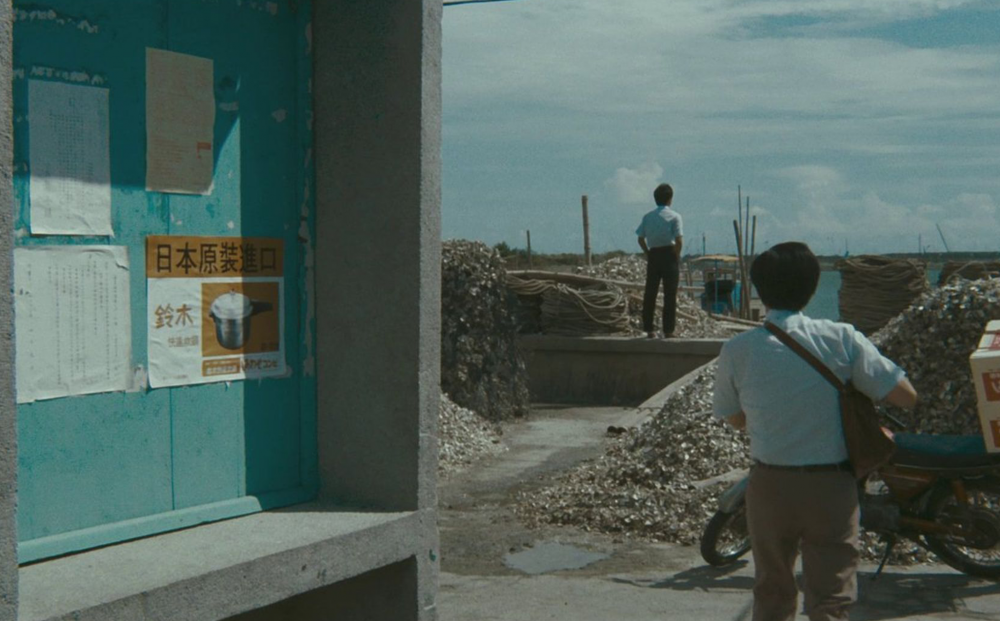THE SANDWICH MAN
兒子的大玩偶
Saturday, November 12
12:30
Monday, November 14
8:00
*Tonight's screening will be introduced by New Waves series programmer, Haden Guest.
Taiwan
The Son's Big Doll (1982, Hou Hsiao-hsien)
Vicki's Hat (1982, Wan Jen)
The Taste of Apples (1982, Zhuang Xiang Zeng)
Approx. 105 min. DCP Courtesy Taiwan Film and Audiovisual Institute.
“The second of two portmanteau films produced by the Central Motion Picture Corporation in the early 1980s as part of their newcomer policy, THE SANDWICH MAN consists of three adaptations of stories by the influential Nativist author Huang Chun-ming. In the first segment, Hou Hsiao-hsien poignantly depicts the challenges faced by an illiterate laborer in a rapidly modernizing world and reflexively uses his job as a walking movie advertisement to comment upon the exigencies of the commercial film industry. The metaphoric exploration of Taiwan’s historical position is extended in the segments directed by Tseng Chuang-hsiang and Wan Jen, which critically portray the effects of Japanese consumer goods and American military personnel on Taiwanese life. Wan’s Vietnam War-era satire of neocolonialism antagonized conservative critics and provoked the New Cinema’s first public controversy.” – Richard I. Suchenski
“Announced the emergence of a young generation of Taiwanese filmmakers who were not interested in working within the tradition of sentimental genre films produced by the island’s studio system. The following year, THE SANDWICH MAN, another omnibus film,made the same point even more emphatically by focusing on the lives of Taiwan’s working poor—comprised of three episodes adapted from stories by Huang Chun-ming, whose fiction was in the Seventies one of the first articulations of a contemporary Taiwanese culture distinct from mainland China. Hou’s opening episode sets a tone of closely observed everyday existence. The film’s impact—including its explicit protest of US and Japanese influence on Taiwan—was so profound that pressure by conservative forces to have the film re-edited was successfully resisted.” – David Pendleton, Harvard Film Archive notes

